Since 2010 I have developed numerous courses for both in-person and online courses. The following are six example courses I have developed and taught. Each course listed below includes a description, the format of the course, the school at where it was taught, and a copy of the course syllabus.
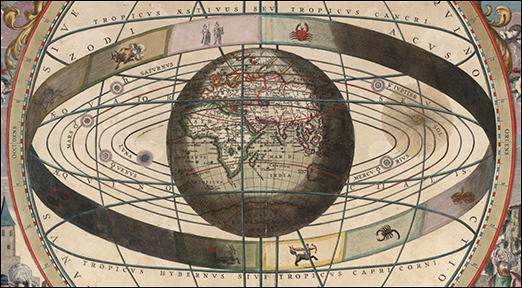
Institution: Utah State University
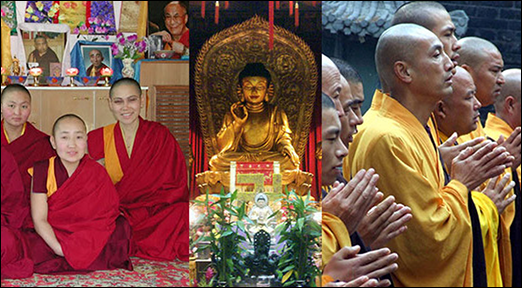
Institution: Utah State University
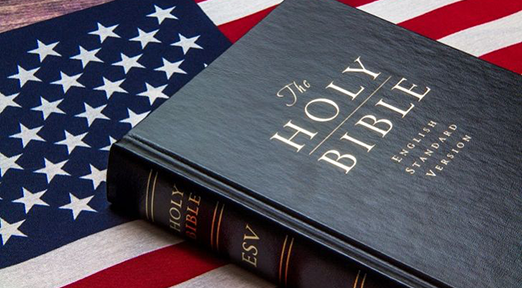
Institution: Florida State University
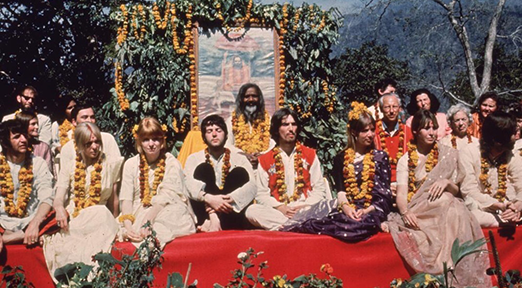
Institution: Florida State University
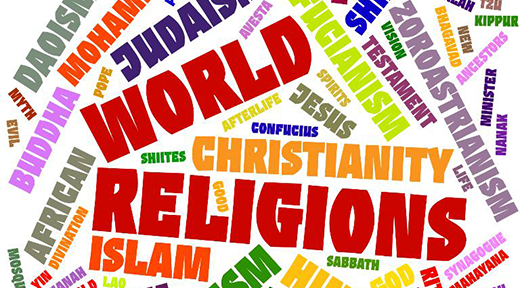
Institution: Florida State University / Tallahassee Community College
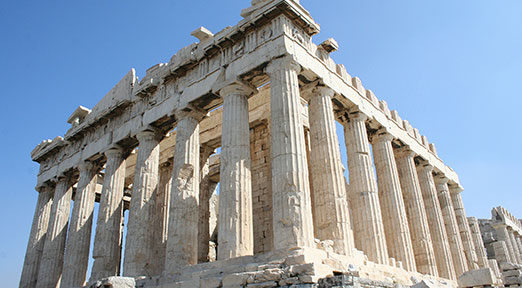
Institution: Tallahassee Community College

RELS 2060: Religion & Science: Examining a Complex History of Interaction
Course Format: OnlineInstitution: Utah State University
Description: Religion and Science was the third online course I developed for Utah State University. The course allowed me to combine my research interests in the history and rhetoric of science with a wider engagement of the methodologies and theoretical issues offered in the fields of religious studies and critical theory. The course was divided into three sections. The first section interrogated the terms religion and science, looking at the historical periods in which they were created and preceding terms, particularly natural philosophy. This section allowed students to challenge their preconceived notions about the relationship between religion and science and track how natural philosophy developed through the ancient period to the Late Middle Ages. The second section looked at the shifting nature of natural philosophy under the influence of Protestantism but focusing on specific figures including Francis Bacon, Galileo Galilei, Robert Boyle, and Isaac Newton. The third section critically examines the development of science in the modern era, its professionalization, and challenge to the hegemony of the religious sphere. The course ends with an analysis of the Scopes trial and enduring myth of the conflict between religion and science.

RELS/HIST 3010: Introduction to Buddhism
Course Format: OnlineInstitution: Utah State University
Description: Introduction to Buddhism. This class will explore and engage the history, beliefs, and practices of Buddhism since its beginning over 2,500 years ago. Students will have an opportunity to survey the various ways Buddhism has manifested in different parts of the word during diverse time periods. It will cover all major forms of Buddhism, including Theravada, Mahayana, and Vajrayana Buddhism, important historical, philosophical, and doctrinal developments of Buddhism, as well as how Buddhism was received in “the west,” meaning Europe and the Americas. The course will also challenge students to develop analytical and critical think skills. This will also allow students the opportunity to compare Buddhism to other religious traditions with which they may be familiar, and be applied to any other subject that they wish to analyze.

REL 2121: Religion in the United States: A Survey from the 15th to the 21st Century
Course Format: In-personInstitution: Florida State University
Description: Religions of the United State surveys the history of various religious traditions that have been practiced in North America and the Caribbean over the last five-plus centuries. This course will also look at the unique issues encountered when studying the history of religion in an academic environment. The issues of definition, insider/outsider viewpoints, and colonial legacies will just be a few of the topics explored while surveying the religious practices and beliefs that can be found in North America. Because this course meets the liberal studies writing requirement, students will be assigned to write essays accumulating to at least 3000 words over the semester. These essays help students delve deeper into the materials covered and assist students with writing and critical thinking skills. While there is a course text book, it is a collection of primary materials. This book and additional primary materials will be assigned weekly. Reading Primary materials will help further develop critical thinking skills as students apply them to each day’s lesson and discussion.

REL 3128: New Religions: From Mormonism to Scientology
Course Format: In-personInstitution: Florida State University
Description: This course is designed to look at a variety of religious traditions that have emerged in the United States over the last two centuries. Over the duration of the course we will examine these religious traditions, their history, context, and reception by society in general. The field of study called New Religious Movements (NRMs) has a history of its own, one intimately tied to the traditions its studies. The course will examine this history looking at its origins in “cult studies” of the 1970s. Thus to study New Religious Movements in America, it is also necessary to review where the field of study derived and how that history shapes how which traditions are included in its domain and which are excluded. As such, the course is based on a number of broad questions regarding New Religious Movements and their study: What is a New Religious Movement (NRM)? Is it a cult? How do NRMs differ from other religious movements or institutions? How are they similar? How do members of NRMs understand their own history and the history of the world? What is their worldview? How do NRMs change over time? Do they become more conventional or more oppositional? When did the study of NRMs begin and why? What is the history of the academic field of New Religious Studies? What is the value in studying NRMs, their history, and the way the Academy has responded to them? The course will end with an extended study of Scientology.

REL 1300 / REL 2300: Introduction to World Religions
Course Format: In-personInstitution: Florida State University / Tallahassee Community College
Description: Introduction to World Religions syllabus. This class explores and engages the history, religious beliefs, and practices of numerous cultures around the world over a vast time span. The class gives an opportunity to survey the variety of religious traditions, and realize the immense diversity of practices and beliefs placed under the category of religion. It also gives a broad exposure to varying worldviews that have influenced the ways people live their lives and interact with each other. This course highlights certain aspects of culture that interact with and/or are integral to the category of religion. It also challenges preconceived notions about a variety of topics related to religion including race, class, gender, religious texts, beliefs, practices, politics, including colonialism, economics, violence, and how societies have responded to religions that have emerged in that last few centuries. These issues will be explored within the framework of historical and cultural theory.

HUM 2210: Humanities of the World I
Course Format: In-personInstitution: Tallahassee Community College
Description: Humanities of the World I surveys the arts and ideas of various cultures consisting of an integrated, historical, and global approach to cultural expressions in the humanities including architecture, sculpture, painting, music, drama, literature, religion, philosophy, politics, jurisprudence, and economics. Spanning from pre-history to the Italian Renaissance, the course covers the earliest traces of human culture, ancient Egypt, the Aegean world, ancient Greece, ancient Rome, the Jewish tradition, the Christian tradition, Islamic culture, India, China, Japan, the Americas, medieval European culture, and the Renaissance in Europe. Most classes will be a combination of a traditional lecture and group discussion format. There will also be a noticeable emphasis on critical thinking in writing and discussion analysis. Students will benefit most from the class if they read all assigned materials, take extensive notes and pause frequently to think about what they have learned in class to make connections between the various subjects and time periods we cover. This course contains a substantial writing component and fulfills state writing requirement. 3 credit hours. Satisfies the general education requirement.